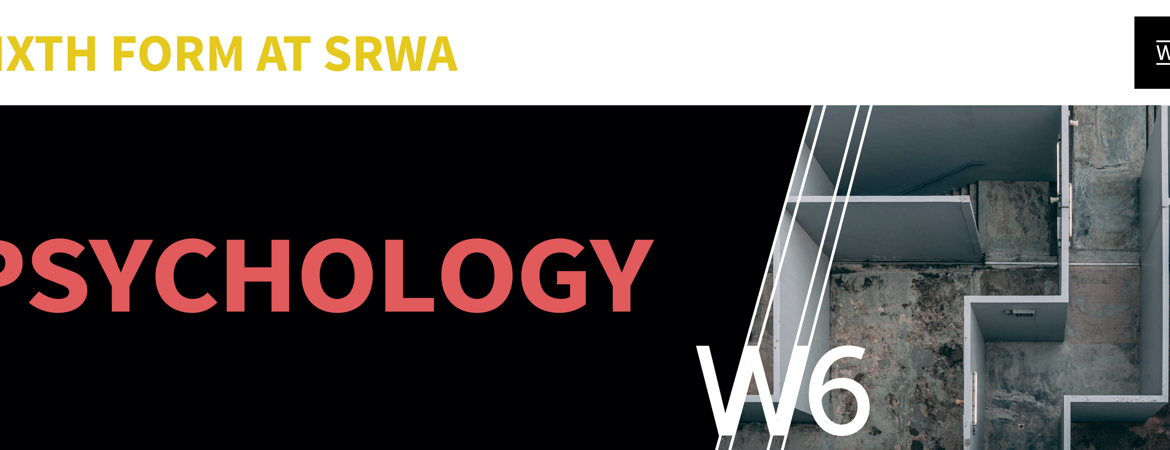- Home
- Sixth Form
- Courses at W6 Sixth Form
- Psychology
Psychology
Entry requirements
Entry requirements
4 in GCSE English Language or Literature
5 in GCSE Maths
5 in GCSE Science (A strong grade in Biology is an advantage)
What will I study
The course is split into 12 modules across three broad areas.
1) Introductory topics in psychology: Social influence especially conformity and obedience; memory including models and eye witness testimony; attachment including the impact of early attachments on cognitive; social and physical development and psychopathology including definitions of abnormality, and causes and treatments of phobias, OCD and depression.
2) Psychology in context: Research methods; approaches in psychology and biopsychology including understanding the brain and biorhythms including sleep and the menstrual cycle.
3) Issues and debates in psychology including ethics and different explanations for causes of behaviour: This is part of the AQA core specification.
In addition, we will choose one from each of the following three groups of optional topics
Option 1: Relationships; Gender; Cognition and development.
Option 2: Schizophrenia; Eating behaviour; Stress.
Option 3: Aggression; Forensic psychology; Addiction.
The options listed above are chosen by a vote by students, guided by the teacher.
How will I be assessed?
There will be three exams of two-hour duration at the end of the second year. This is a linear two-year course. Each exam carries equal weighting.
There is no coursework, but you will be set research projects to help you apply your psychological research methods knowledge. Throughout the course, you will be assessed through a variety of essays, exam questions, knowledge tests and practical research projects. Results from these will form the basis of your teacher-assessed progress grade. However, your actual final grade depends solely on your performance in the final three exams at the end of the two-year course.
Is this subject for me?
Psychology is the study of the human mind and behaviour. Psychology is an intellectually demanding subject that requires a lot of extra reading and thorough and well-planned written answers.
In Psychology, science and mathematics meet humanities and as such is a fascinating subject for the intellectually curious. Psychology requires students to develop their skills in mathematics, English and science (particularly biology). To study psychology you will need to hone your analytical and organisational skills and learn about scientific research methods, including collecting and working with data.
Learning about human behaviour can help build your communication, teamwork and leadership skills.
Where can this lead me?
If you are interested in studying the subject at degree and post-graduate level, in order to become a psychologist, you can work in a huge range of areas including:
Sports – helping athletes to build mental strategies to improve their performance and handle pressure.
Education – studying child development and helping children experiencing difficulties with their education.
Clinical and counselling – treating people with mental health needs.
Forensic - assessing and treating criminal behaviour.
Neuropsychology – studying how the physical function of the brain affects the way we behave and helping treat people suffering from brain injuries.
What else is there?
Psychology is useful for any job that requires lots of interaction and understanding human behaviour. Psychologists have excellent communication and active listening skills.
People with skills in psychology are sought after in business, management, teaching, research, social work and careers in healthcare.
There are often opportunities to practise conducting your own psychological experiments to practise planning, conducting and analysing psychological research. For example, when learning about attachment, you may have the opportunity to act as an attachment figure to an inanimate object (e.g. an egg) to test the psychological theories relating to parent-child interactions.



